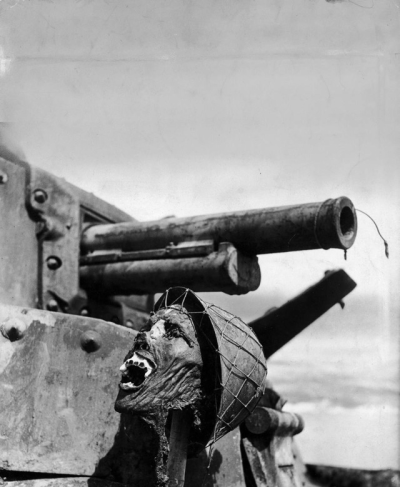(From April 2011)
You keep coming across those news articles; you know, headlines like “Ten insurgents die in clash with army,” or “Landmine explosion kills soldier.” And you either skim over them cursorily, or read them with satisfaction or not, depending on which side did the killing and which side the dying in that episode.
Like, recently, I was reading about how some rebel in Libya was being interviewed “next to the charred corpse of a Gaddafi soldier” – a throwaway line probably intended to make him sound like a heroic fighter. I don’t know whether the rebel or the Gaddafi soldier’s corpse actually existed outside the reporter’s imagination, but that doesn’t particularly matter.
For imagine the reality. Every one of those dead people was a human being like yourself. Every single one of them, so casually mentioned in a media article, was someone who had felt the touch of wind on his face, the rain on his arms, seen the red of a flower bleed into the air from among the green of leaves. He, too, might have held a lover in his arms and felt her heart beating against his chest, her face buried in the hollow of his neck. He, too, would have had dreams, if only the dream of being a glorious martyr.
In two of my four completed novels, I’ve followed the fortunes of “terrorists”: I’ve tried to humanise them as far as I could, and when I did, I found a strange reluctance to kill them off as I’d intended. In the second instance, that reluctance actually led me to changing the very course of the novel, turning the said “terrorist” from an ancillary character (who's killed off halfway in the first draft) to the book’s primary focus. He was simply too human to die, by my hand anyway.
Do you know this iconic photograph from Guadalcanal?

Even this nameless Japanese soldier must have had dreams and hopes, parents waiting for him in Yokohama or Kyoto. Even he, who might have perhaps bayoneted a Chinese prisoner in the Rape of Nanjing, or used the services of “comfort women”, might have had dreams and hopes and aspirations. I'm not saying he did any of those things; just that he might have. That doesn't make him less human.
That’s not something the media wants you to think of. Because when you think beyond the statistics, you begin to wonder how any of this makes sense, especially when this planet will be cremated by the sun anyway in a few billion years, even assuming that humanity lasts anywhere near that long.
Answer: It doesn’t make sense.
Not to me.
We aren't no thin red 'eroes, nor we aren't no blackguards too,
But single men in barricks, most remarkable like you
Rudyard Kipling, Tommy Atkins
But single men in barricks, most remarkable like you
Rudyard Kipling, Tommy Atkins
You keep coming across those news articles; you know, headlines like “Ten insurgents die in clash with army,” or “Landmine explosion kills soldier.” And you either skim over them cursorily, or read them with satisfaction or not, depending on which side did the killing and which side the dying in that episode.
Like, recently, I was reading about how some rebel in Libya was being interviewed “next to the charred corpse of a Gaddafi soldier” – a throwaway line probably intended to make him sound like a heroic fighter. I don’t know whether the rebel or the Gaddafi soldier’s corpse actually existed outside the reporter’s imagination, but that doesn’t particularly matter.
For imagine the reality. Every one of those dead people was a human being like yourself. Every single one of them, so casually mentioned in a media article, was someone who had felt the touch of wind on his face, the rain on his arms, seen the red of a flower bleed into the air from among the green of leaves. He, too, might have held a lover in his arms and felt her heart beating against his chest, her face buried in the hollow of his neck. He, too, would have had dreams, if only the dream of being a glorious martyr.
In two of my four completed novels, I’ve followed the fortunes of “terrorists”: I’ve tried to humanise them as far as I could, and when I did, I found a strange reluctance to kill them off as I’d intended. In the second instance, that reluctance actually led me to changing the very course of the novel, turning the said “terrorist” from an ancillary character (who's killed off halfway in the first draft) to the book’s primary focus. He was simply too human to die, by my hand anyway.
Do you know this iconic photograph from Guadalcanal?

Even this nameless Japanese soldier must have had dreams and hopes, parents waiting for him in Yokohama or Kyoto. Even he, who might have perhaps bayoneted a Chinese prisoner in the Rape of Nanjing, or used the services of “comfort women”, might have had dreams and hopes and aspirations. I'm not saying he did any of those things; just that he might have. That doesn't make him less human.
That’s not something the media wants you to think of. Because when you think beyond the statistics, you begin to wonder how any of this makes sense, especially when this planet will be cremated by the sun anyway in a few billion years, even assuming that humanity lasts anywhere near that long.
Answer: It doesn’t make sense.
Not to me.
No comments:
Post a Comment